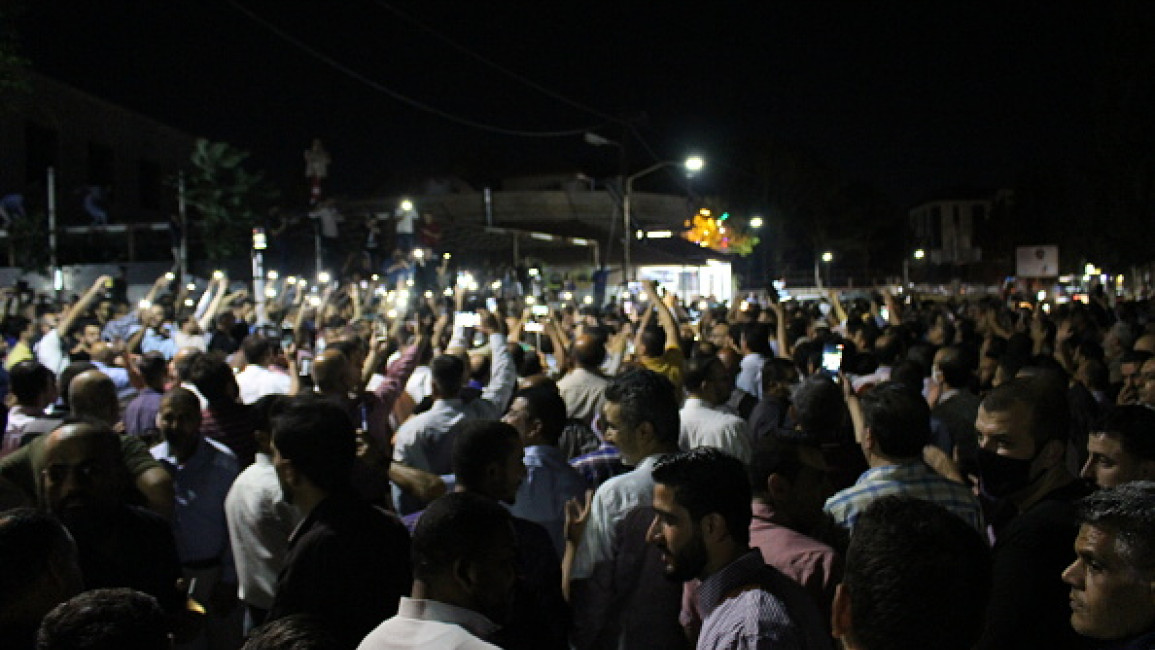Jordan teachers' union wins appeal, but remains banned
Jordan's court of appeals announced on Sunday that a court case lodged against the Jordanian Teachers' Syndicate - the kingdom's largest labour union - has been dismissed.
The union had been shut down on 25 July 2020 after its leadership was accused of misappropriating funds. The accusation came after the union made a half-million Jordanian dinar ($705,000) donation to the country's health ministry, reportedly to assist with the fight against Covid-19.
The granting of the union's appeal dismisses one of the two cases lodged against the organisation. Until both cases are resolved, the union cannot resume its operations, according to its lawyer, Bassam Freihat.
"The second case called for a cessation of the union’s activities and its dissolution – we are expecting to see a decision on this case soon," Freihat told The New Arab. "I expect that the decision [to dissolve the union] will be cancelled, and the union will return to its work soon."
The formation of the teachers' union was a hard-fought win of the 2011 Arab Spring protests. Prior to its closure, it was the largest body not under the control of the Jordanian government with 140,000 members.
The union's closure was met with public anger in Jordan and critics alleged the court cases against its leadership were politically motivated. In fall 2019, the union organised a month-long teachers' strike over the delay of promised wage increases. In the midst of the Covid-19 crisis, the Jordanian government again cancelled raises for teachers.
The teachers' union has long been seen as being dominated by the Muslim Brotherhood, one of the kingdom's most powerful political forces.
The Jordanian government insisted the decision to close the union was made "independently" by the judiciary in accordance with the constitution.
"In the first place, the decision to dissolve the union was a big mistake. The union was created lawfully, by a parliamentary law. It is not up to the judiciary to strike down a law from the parliament," Freihat said.
Reporting by The Guardian in August 2020 revealed that up to 1,000 demonstrators had been arrested for protesting against the government's decision to close the union. Many of those arrested were done so under newly passed "defence laws" meant to give the government extra-constitutional powers in order to deal with the Covid-19 crisis.
Over a year and a half after Jordan’s first lockdown, the defence laws are still in effect.
"From a realistic point of view, there is no reason to have these defence laws. All these issues can be handled by civil law," Oraib Rantawi, the director of the Amman-based al-Quds Center for Political Studies, told The New Arab. He added that the rising Covid-19 cases in Amman have justified the government's decision to maintain these laws.
The decision to grant the teachers' union appeal, while still not fully legalising it, is "reflective of a new attitude within the inner circles of the regime to deal with the union in a different way", Rantawi said.
He said that this change in attitude will help "pave the way" for implementing the recommendations of the recently adjourned Committee to Modernize the Political System meant to improve Jordan's parliamentary democracy.



